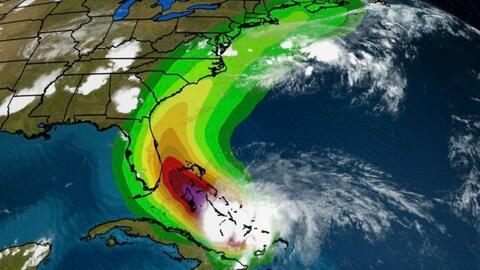Tropical Storm Isaias is making its way up the coast to the tri-state area tonight into tomorrow. This intense storm is expected to bring flooding rain, storm surge, powerful and destructive storm force winds, and the potential for isolated tornadoes.
Powerful storms not only bring the danger of fierce weather, but also put residents at increased risk for potentially serious health effects from carbon monoxide (CO) poisoning, medicine contamination/safety, food poisoning, medicine dosing errors, and mistaken identity mishaps.
(New Jersey) – Every minute counts in poisoning situations – Do Not Guess! If you have questions or concerns about something you ate, touched or smelled, immediately contact the medical professionals at the New Jersey Poison Control Center.
You may call (1-800-222-1222), text (973-339-0702), or chat with our professionals for free, 24/7. Save the Poison Help line in your phone to be prepared for any situation. If someone is unconscious, not breathing, hard to wake up, or seizing, call 9-1-1 immediately.
“Carbon monoxide poisoning is an immediate and deadly danger no matter the season and especially after bad weather,” says Bruce Ruck, Pharm.D., managing director of the New Jersey Poison Control Center at Rutgers New Jersey Medical School, Department of Emergency Medicine.
“Don’t be the poison center’s next statistic, act fast if you suspect CO poisoning. Carbon monoxide is a poisonous gas that gives no warning – you can’t see it, smell it or taste it.”
Besides, carbon monoxide poisoning, residents are at risk for other poisoning injuries. Flooding in homes can contaminate food, drinking water, and medicines.
Power outages often lead to medicine dosing errors and mistaken identity mishaps which can result in serious health effects.
Food in refrigerators and freezers can spoil leaving people at risk for food poisoning.
If you suspect a poisoning exposure/injury has occurred, do not wait until symptoms occur or spend critical time looking online. Call your poison control center for immediate help, 1-800-222-1222.
Safety tips to help reduce your risk of carbon monoxide exposure during severe storms:
Only use generators outside. Keep them more than 20 feet from both you and your neighbor’s home, doors, windows, and open garages.
Do not bring generators, pressure washers, grills, camp stoves, or other gasoline, propane, natural gas or charcoal-burning devices inside your home, basement, garage, carport, camper, boat cabin, or tent – or even outside near an open window or door.
Test carbon monoxide detectors to make sure they are working.
If detectors have batteries, check to make sure they are working. Plug-in CO detectors should have battery backups in case the power goes out, but it’s best to check your detector to make sure.
Do not remove the batteries from detectors to use somewhere else. The detector can only save lives if it works!
Do not cook with charcoal indoors.
Do not idle a car in a closed garage.
Once you pull in, immediately turn off the engine. Be extra careful with “remote start” engines which may be on without your knowledge.
If you suspect a carbon monoxide exposure, take immediate action:
If someone is unconscious or unresponsive, get him or her out of the house and call 9-1-1 immediately.
Exit the house/building immediately.
Do not waste time opening windows. This will delay your escape and cause you to breathe in even more dangerous fumes.
Contact your local fire department/energy provider.
Call the New Jersey Poison Control Center at 1-800-222-1222 for immediate medical treatment advice.
Do not waste time looking for information on the internet about carbon monoxide poisoning. Call us for fast, free and accurate information.
Help is Just a Phone Call Away!
